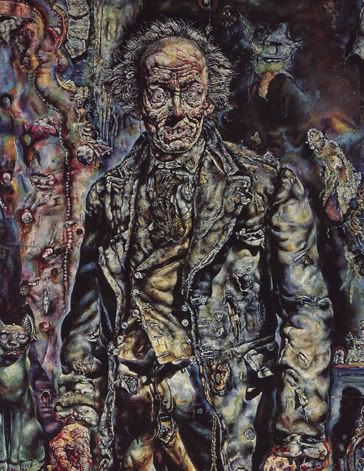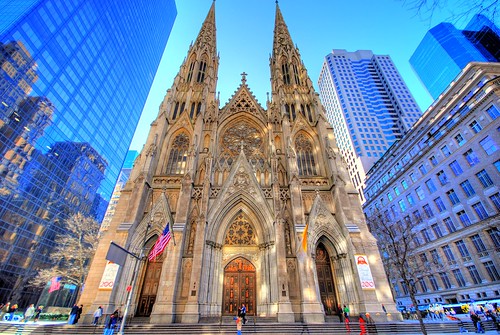Shakespeare’s lesser-known Memento Mori Speech, the funny one
Shakespeare’s famous mortality speech, about being and not, is perhaps the most well-known line in the entirety of English drama. This is not his only memento mori speech, however; he has another in Measure for Measure. It’s quite funny.
CLAUDIO
Ay, but to die, and go we know not where;
To lie in cold obstruction, and to rot;
This sensible warm motion to become
A kneaded clod; and the delighted spirit
To bathe in fiery floods or to reside
In thrilling regions of thick-ribbed ice;
To be imprison'd in the viewless winds,
And blown with restless violence round about
The pendent world; or to be worse than worst
Of those that lawless and incertain thought
Imagine howling!--'tis too horrible!
The weariest and most loathed worldly life
That age, ache, penury, and imprisonment
Can lay on nature is a paradise
To what we fear of death.
HAHHAHAHAHAAAHAHAAHHAAHA-wait, what? That’s not funny! Out of context, it isn’t. Here’s the context: Claudio has been condemned to die by the cruel and lustful Angelo. Isabella, Claudio’s sister, has just met with Angelo to beg for her brother’s forgiveness. Angelo has told Isabella that, sure I’ll let Claudio go free, if you’ll have sex with me, that is.
Isabella, in a huff, marches to the prison to inform her brother that he’s going to die.
ISABELLA.
Why,
As all comforts are; most good, most good, in deed:
Lord Angelo, having affairs to heaven,
Intends you for his swift ambassador,
Where you shall be an everlasting leiger:
Therefore, your best appointment make with speed;
To-morrow you set on.
CLAUDIO.
Is there no remedy?
ISABELLA.
None, but such remedy as, to save a head,
To cleave a heart in twain.
CLAUDIO.
But is there any?
ISABELLA.
Yes, brother, you may live:
There is a devilish mercy in the judge,
If you'll implore it, that will free your life,
But fetter you till death.
CLAUDIO.
Perpetual durance?
They have this continuing exchange where Isabella dances around the terms of Angelo’s proposal, only saying that it will bring unyielding, unrelenting shame to their family. Finally, she spills it. This is the ensuing exchange, uncut:
CLAUDIO.
Thou shalt not do't.
ISABELLA.
O, were it but my life,
I'd throw it down for your deliverance
As frankly as a pin.
CLAUDIO.
Thanks, dear Isabel.
ISABELLA.
Be ready, Claudio, for your death to-morrow.
CLAUDIO.
Yes.--Has he affections in him
That thus can make him bite the law by the nose
When he would force it? Sure it is no sin;
Or of the deadly seven it is the least.
Hm, yeah, well, maybe having sex with a greasy old man isn’t so bad. . .This is where we have the mortality speech. This guy is with increasing desperation begging his sister to fuck some scuzzball so that he can go on living. This is his line right after the mortality speech:
CLAUDIO.
Sweet sister, let me live!
What sin you do to save a brother's life
Nature dispenses with the deed so far
That it becomes a virtue.
ISABELLA.
O you beast!
O faithless coward! O dishonest wretch!
etc. etc.
CLAUDIO.
Nay, hear me, Isabel!
ISABELLA.
O fie, fie, fie!
Thy sin's not accidental, but a trade:
Mercy to thee would prove itself a bawd:
'Tis best that thou diest quickly.
[Going.]
CLAUDIO.
O, hear me, Isabella!
And she walks out on him. The scene is one of the finer pieces of black comedy I’ve read in a play. “You’re doomed.” “Really?” “Yes.” “Really Really?” “Yes, but-” “But? But?!” “Well, if I bang some old guy you can go-” “Do it!” “What?” “Bang the old guy! Please! I don’t wanna die! WAAAH” “Piss off.” “No, don’t leave me, PLEASE!”






